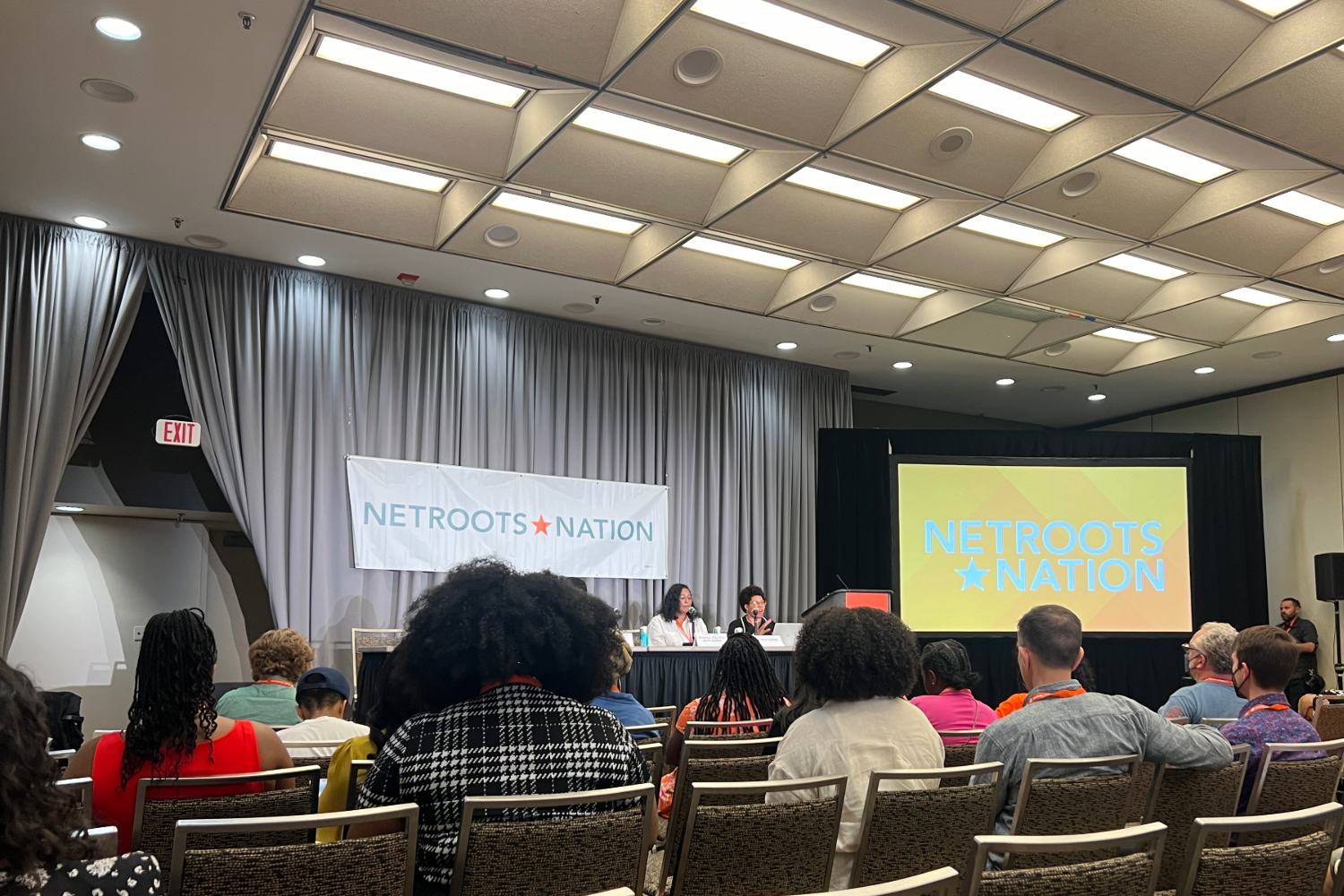4 Social Media Conversations Happening This Year at Netroots
For those unfamiliar, Netroots Nation is an annual conference dedicated to progressive activism. It serves as a gathering for organizers, elected officials, creatives, researchers, and other advocacy professionals to convene, receive training, hear from panelists, and exchange knowledge. This was my second time attending Netroots and once again I was incredibly energized by the opportunity to fraternize with my fellow social justice warriors (lol).
During the conference, I attended workshops related to digital media, messaging strategy, and storytelling. Whether the workshop directly covered social media or not, social media conversations were front and center.
Here were some of the conversations we had about social media as a tool for our movements:
Are we still on Twitter/X?
It’s to no one’s surprise that a group of progressives aren’t necessarily the biggest fans of Elon Musk. But we were fans of Twitter. At least before Musk took over, renamed it to something that could be confused for a porn site, and changed everything.
While Twitter had already had far less overall usage compared to its competitors, that gap has only grown since Musk's leadership (Twitter usage has dropped by almost a quarter since November 2022 when Musk took over). Still, during a training by Beth Becker, a social media consultant that specializes in advocacy work, we discussed ways that Twitter remains useful. Twitter is still the best way to get the attention of decision makers, whether they are elected officials or corporate board members. Journalists are also most present on Twitter. While some have pledged to leave the platform, civil society groups are still reporting Twitter to be the main place where they can cultivate relationships with journalists.
Which leaves us in a tricky situation. But generally, I’m hearing that groups are cautiously using Twitter while exploring alternatives and doubling down on their presences on Instagram, Threads and TikTok.
It’s been a year since Threads launched. How are we liking it?
According to Beth’s training, Threads has introduced 126 new features in the past year since it launched. So the question is, are these new features enough to encourage a shift from Twitter to Thread? I heard from a peer at League of Conservation Voters that they are seeing massive engagement on Threads compared to Twitter, despite having a significantly smaller following on Threads. My observation is that Threads has been a great alternative for groups who already had a significant following on Instagram and were able to launch Threads with a sizable audience.
However, I think many of us can’t rely on Threads to fully replace Twitter at this time. In addition to the ways that I listed above about how Twitter is still beneficial, Threads is ultimately still a Meta product, which comes with a slew of drawbacks.
How are we leveraging creators in our campaign work?
One training I attended — hosted by Resource Media — discussed how creators can help reach target audiences and advance campaign objectives in creative, innovative ways. One thing I appreciated in that training was establishing standard rates that creators are paid based on their followings. This is so important in promoting pay equality, which is a huge issue in influencer marketing, especially for BIPOC creators.
All of the managers who spoke about their experiences working with creators in their campaign work agreed that those campaigns reached more people, generated more petition signatures and generally produced better results compared to campaigns that didn’t involve influencers.
As companies and organizations increasingly hire contractors rather than relying solely on in-house support for social media, collaborating with creators is likely to become more common and, hopefully, more efficient.
How are we handling changes to Meta that are deprioritizing political content?
For a group of people who are trying to leverage social media to influence social change, it’d be impossible to not discuss changes to Facebook and Instagram that are making our work very difficult. To catch you up, Meta has taken several measures to reduce political content on its platforms. In my own work, I’ve noticed that explicitly political content has gotten absolutely no reach from non-followers. This is especially challenging for accounts with smaller followings who rely more heavily on external reach.
One social media manager mentioned that her strategy to navigate the change is not mentioning political messaging in the caption. She said that whatever content moderation tools being used may not be picking up on the actual content (what’s discussed in a video or copy on a graphic for example).
Beth Becker also mentioned that she believes Threads is less strict in enforcing anti-news content.
Given social media's pivotal role in advocacy today, I wasn’t surprised that social media strategy was so widely discussed at Netroots. Especially considering all the changes that have taken place in the digital media space over the past year. As we gear up for the upcoming general election, we’ll have to navigate an increasingly hostile environment for creators and organizations focused on social issues. But our movements have always found ways to overcome obstacles, and I am confident this time will be no different!



